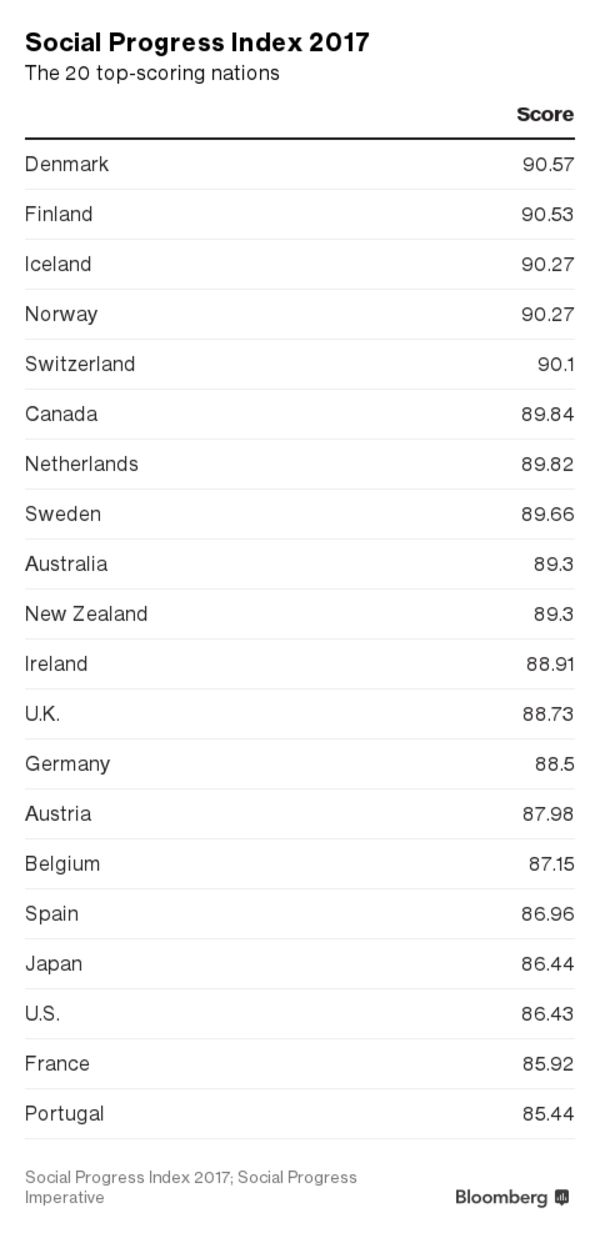The Social Progress Index (SPI) defines social progress as the capacity of a society to meet the basic
human needs of its citizens, establish the building blocks that allow
citizens and communities to enhance and sustain the quality of their
lives, and create the conditions for all individuals to reach their full
potential. Improving quality of life is a complex and multilayered
endeavor, and past efforts to measure progress simply haven’t created a
sufficiently nuanced picture of what a healthy society looks like. The SPI score is an average across scores for the
three broad dimensions: Basic Human Needs, Foundations of Well being, and
Opportunity.
While much of northern Europe continues to provide affordable
healthcare, promote equality, and minimize poverty rates, across the
Atlantic the US is getting more divided and less tolerant. Compared to other countries with similar GDP, the US is lagging in its homicide rates, terrorism, and its traffic deaths. (Business Insider)
Hungary and Nicaragua are among nine countries that have shown the
biggest declines in overall social progress, the study found, and are
doing worse since the index was first done in 2014. The SPI team notes that achieving positive change is harder for the
wealthier, top-ranked countries. Small improvements in low- or
middle-income countries can produce large gains in the SPI ranking. Many
of the world’s wealthiest countries, including the U.S., China, France
and Russia, are barely improving in the index.










